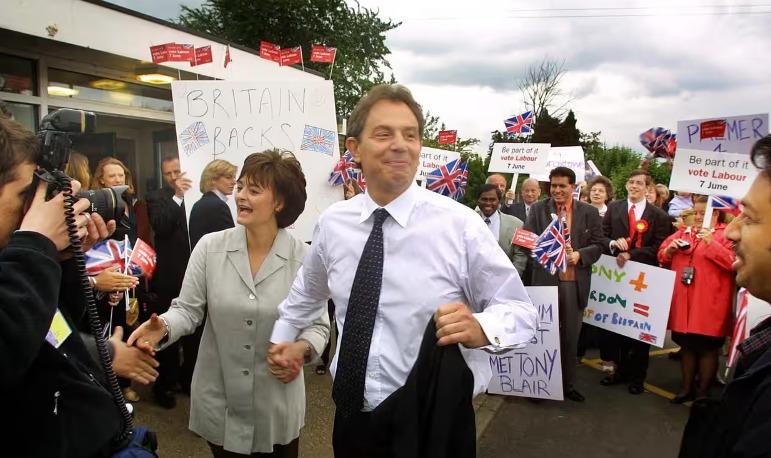As voting commences on Thursday, opinion polls predict a sweeping victory for Keir Starmer’s Labour party, which is anticipated to secure one of the largest parliamentary majorities in British history. Conversely, Rishi Sunak’s Conservative party is projected to face one of its worst defeats.
Historical Comparisons of Landslide Elections
1832 – Whig Majority of 224 Seats:
The Whigs, evolving into Liberals, secured an overwhelming majority post-Reform Act, with the Tories winning under 29% of the vote. The Act doubled the voter base among middle-class men.
1906 – Liberal Majority of 143 Seats:
The Liberals, led by Henry Campbell-Bannerman, achieved a landslide with a 5.4% swing from the Conservatives. The Conservatives saw their lowest seat count, and leader Arthur Balfour lost his seat.

1924 – Conservative Majority of 209 Seats:
Stanley Baldwin’s Conservatives triumphed after a vote of no confidence ousted Labour’s Ramsay MacDonald. The Liberals were reduced to the third party status.
READ ALSO: Rishi Sunak votes as UK General Election commences
1931 – National Government Coalition:
Formed after the second Labour government collapsed, this coalition won 67% of the vote, with Conservatives holding 470 seats. Labour faced its worst defeat, retaining only 52 MPs.
1945 – Labour Majority of 145 Seats:
Labour, under Clement Attlee, won nearly half the popular vote, defeating Winston Churchill’s Conservatives. This victory led to the creation of the NHS and the welfare state.
1983 – Conservative Majority of 144 Seats:
Margaret Thatcher’s second win, boosted by the Falklands conflict, saw Labour’s worst result since 1918, partly due to the SDP-Liberal Alliance and Labour’s extreme left-wing manifesto.
1997 – Labour Majority of 179 Seats:
Tony Blair’s New Labour ended 18 years of Conservative rule, winning with centrist policies. The Conservatives faced their worst result since 1906, plagued by scandals and economic crises.
2001 – Labour Majority of 167 Seats:
Blair’s Labour secured another landslide, becoming the only Labour PM to serve two consecutive full terms, though voter turnout dropped to its lowest since 1918.



